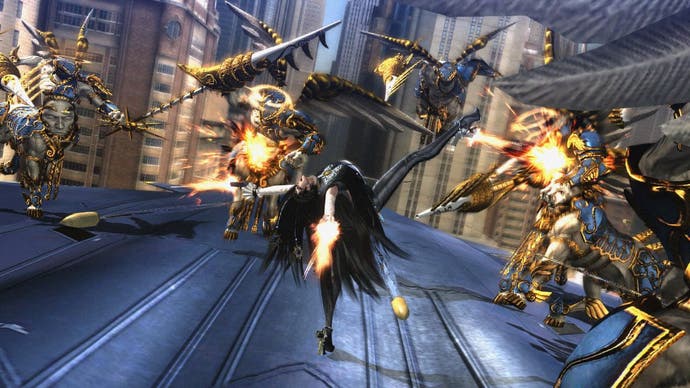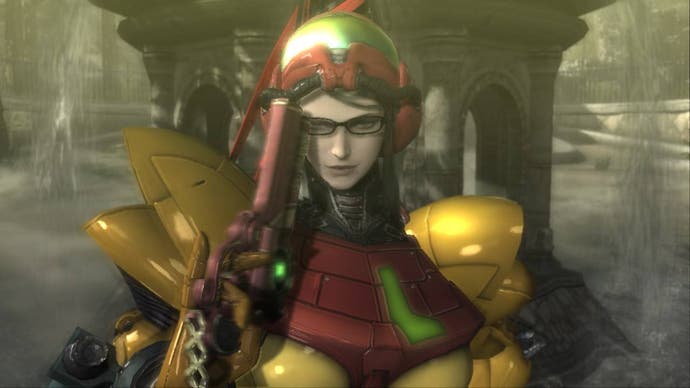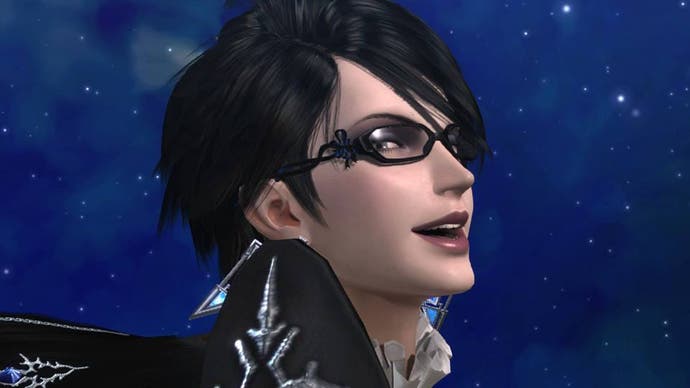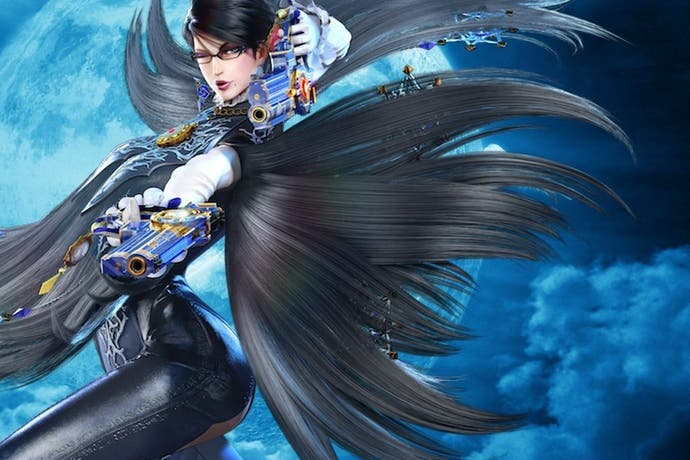In Nintendo, Bayonetta has found the most unlikely saviour
Witchcraft.
What's the best title to have come from PlatinumGames? My own answer changes with the wind - sometimes it's the just about perfect third-person shooter Vanquish, other times it might be the outrageously eccentric Wonderful 101 - but when it comes to the purest expression of what the industrious Osaka studio is about, then there's only really one answer. And that's the brilliant Bayonetta, of course.
For all its out-there strangeness - this is, after all, a game in which you play a domineering witch with guns for heels and whose hair transforms magically into screen-devouring demons - Bayonetta initially had the distinction of being one of PlatinumGames' more straightforward offerings. Part of the very first wave of games brought to life through the fledgling studio's partnership with Sega, Bayonetta sat alongside the thrillingly weird MadWorld, a game which ran counter to so much that was going on with its host platform the Wii at the time, and which bizarrely features a writing credit for the outstanding Yasumi Matsuno. Elsewhere in that line-up was the sadly unsung Infinite Space, a star-faring JRPG which squeezed an entire universe onto a DS cart.

Eccentric exercises, both, but in the whirling madness of Bayonetta there was something familiar - a clear, clean line to the balletic action of Devil May Cry, the game that cemented the reputation of its creator Hideki Kamiya. Bayonetta's winning trick is taking that original formula and at once refining it while pushing it outwards to almost unimaginable extremes. It's the Super Mario Galaxy to Devil May Cry's Mario 64 - an exercise in audacious creativity, all delivered with a gun-strapped boot to the arse. Heady, breathless stuff, served up with a camp panache that makes it an absolute delight.
If Bayonetta's the purest expression of what PlatinumGames is about, then the series' journey ever since that first game also feels pretty representative of the long and winding roads the developer has taken ever since that Sega deal ceased. A sequel was mooted and got beyond the early concept stage, but there was some dithering and development stalled - perhaps in part because Bayonetta's sterling critical reception and the warm response from the fans never translated into sales, and maybe too because a little trust was eroded in how Sega mishandled the game's PlayStation 3 port. Whatever happened, Sega was courteous enough to step aside when a new suitor emerged in the shape of Nintendo.

It's a partnership that, at first, seemed more than a little strange. Bayonetta, with her S&M overtones and with a supporting cast that's more than happy to let the f-bombs fly, doesn't at first seem like the finest fit for the house of Mario - that bawdiness, those cuss words, that outfit, if you could call it that, aren't exactly mature but they're far from family-friendly, too. Yet, in Nintendo, Bayonetta's found the perfect partner - and perhaps PlatinumGames has too.
Playing through both Bayonetta games recently on the Switch - still a feat of witchcraft in itself, when all that outrageous action is squeezed, perfectly intact, onto the small screen of the portable - you can sense a little of what Nintendo brought to the table. I'd previously thought the original was the superior game, the sequel not offering much than a new haircut for Bayonetta herself, but it turns out that haircut is what makes the sequel special; a little more refined, a little more stylish and with a bit more of a cutting edge. In truth it's a fool's errand trying to rank the two games - they're equally fantastic, but it's the sequel that's the more colourful and immediately approachable of the two.

Two modern masterpieces, then, and we've now the delicious prospect of a third - something which would have seemed near-impossible just a handful of years ago. I always got the impression Sega was slightly bemused and disappointed that the original Bayonetta's exceptional critical reception - including an Edge 10 among other accolades - never really translated to sales, which might have been missing the point a little. Bayonetta's the very definition of a cult classic - cult, of course, being a synonym for a small but dedicated audience - and so PlatinumGames' greatest was never going to be a blockbuster.
Neither was its sequel, limited at first to the Wii U's minuscule audience, and despite the broader success of the Switch I don't think Bayonetta 3's going to set the world alight in terms of sales. But the very fact it's been allowed to exist is cause for celebration, even if I'm not entirely sure why Nintendo's decided to throw its weight behind a series whose spiky edges and off-the-wall theatrics will ensure its appeal will always be relatively limited. Maybe it's because, in the middle of all that mad chaos, it saw a little of itself - that kernel of impeccable craft, that's now able to shine brighter than ever on Nintendo's hardware.

